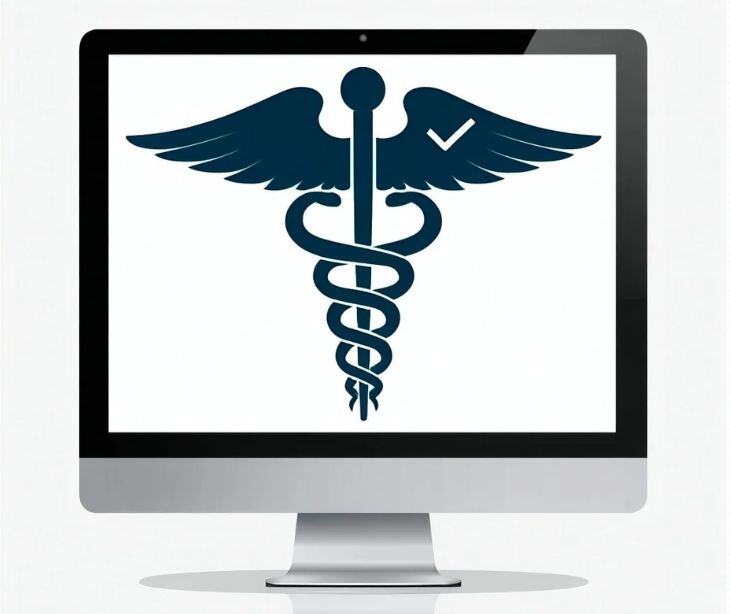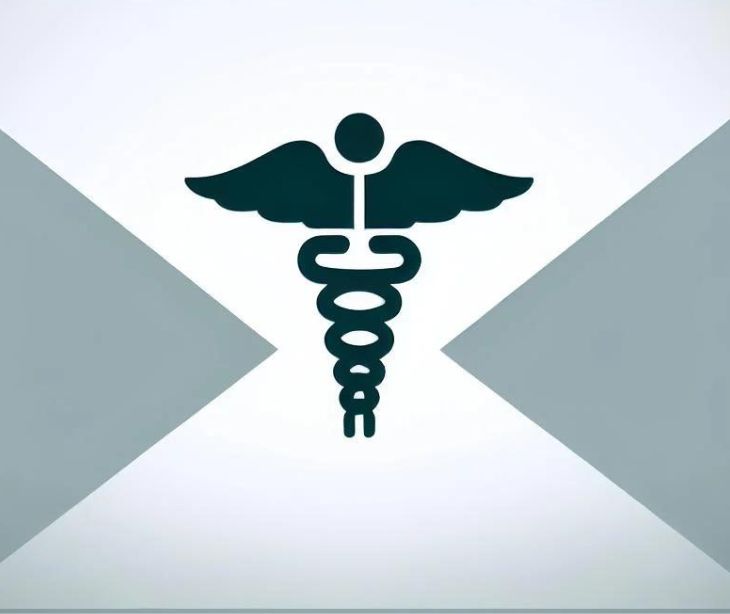5 min read
Who is your HIPAA privacy officer? A guide for small healthcare practices
Gugu Ntsele Mar 10, 2025 6:41:27 PM

In a small healthcare practice, being the HIPAA privacy officer often falls to the practice owner or a senior staff member. While it adds to your responsibilities, it's entirely manageable with proper organization and systems in place.
According to an article by research professor at University of Houston Law Center Ronald L. Scott, "Physicians should designate a privacy officer, who could survey and assess within the practice existing policies and procedures concerning the maintenance and disclosure of protected health information."
Read also: What is a HIPAA privacy officer?
Who can be your privacy officer?
HIPAA does not provide a detailed definition or specific qualifications for privacy officers. The HIPAA Privacy Rule (45 CFR 164.530(a)(1)(i) only states that a covered entity must designate a "privacy official" who is responsible for the development and implementation of the policies and procedures of the entity.
Therefore, practice owners often serve as privacy officers since they can implement changes and hold compliance responsibility. Practice managers can fill this role due to their knowledge of operations and compliance duties. Staff members who understand operations can also take this position if given time and authority for these duties.
Research done by the National Institute of Health (NIH) highlights concerns about the future of privacy officers in healthcare. Studies show many current officers are approaching retirement age, which could create a significant skills gap given the role's requirements for both institutional and technical knowledge. This demographic shift, combined with increasing privacy regulations and cybersecurity threats, makes it important for practices to develop succession plans and invest in training younger staff members for these positions.
Responsibilities of HIPAA privacy officers in small practices
In small healthcare practices, the HIPAA privacy officer role becomes an additional responsibility for the practice owner or a senior staff member.
HIPAA privacy officers manage patient data protection strategies. They develop and implement privacy policies, conduct risk assessments, train staff on compliance protocols, and ensure the organization follows strict patient information protection standards.
According to an article by Information Age, "The [privacy officers] tools of the trade generally fall into three buckets: policies and processes; people; and technology. Policies are the rule book; they describe the company's approach to data protection, and set out the guidelines and rules that staff are expected to follow. Processes include specific tools that help the company, and the [privacy officer], to identify and calibrate privacy risk. People are key in implementing the company's data privacy rule book. Training and awareness-raising are essential to implementing a privacy programme and building a corporate privacy culture. Staff need to know what the baseline legal requirements are, what the company's approach is, and why the company thinks data protection is important. The [privacy officer] plays a key role in raising awareness and rolling out training. Technology refers to systems and automated controls. The [privacy officer] needs to work with companies' IT and information security functions to ensure that systems operate in a privacy-compliant way, and that data security is ensured."
Unique challenges in small organizations
Small healthcare organizations face challenges in privacy management. Limited resources mean privacy officers often juggle multiple roles, balancing compliance responsibilities with other administrative duties. Budget constraints can make training and advanced technological solutions difficult to implement.
An essay by the AMA Journal of Ethics states that, "Numerous financial obstacles confront physicians in the US today. There are, for example, increasing threats of lawsuits that result in escalating malpractice insurance premiums, and soaring practice overhead costs. Physicians also face unfunded legal mandates, including the HIPAA confidentiality regulations."
Technology presents another challenge. Small practices may lack data management systems, increasing vulnerability to potential privacy breaches. Privacy officers must develop protection strategies with limited technological infrastructure.
The Information Age article further states that, "Organizations are facing increasing challenges and legal obstacles when using personal data, with complex legal rules.."
Time management poses a hurdle when balancing clinical duties with compliance responsibilities. According to research conducted by the NIH, “Currently, with the increasing growth of information and businesses and, consequently, the increase in responsibilities and the resulting stress, the importance of proper time management is becoming more and more apparent. Time management refers to a set of behaviors for the optimal organization and division of time. This set of behaviors leads to better use of time and increased productivity and increases the likelihood of achieving predetermined goals. These behaviors include gaining skills in the areas of goal setting, prioritization, and planning as well as finding ways to reduce the waste of time.”
Case study: The risks of no HIPAA privacy officer
In 2019 Elite Dental Associates in Dallas, Texas was fined $10,000 by the Office for Civil Rights (OCR) for a HIPAA violation that stemmed from unclear compliance responsibilities. The practice had responded to a patient's negative review by disclosing protected health information (PHI), including the patient's name, treatment plan details, and insurance information. The subsequent investigation revealed a concerning pattern of unclear responsibility at the practice. There was no designated person responsible for HIPAA compliance, which led multiple problems: staff members had unrestricted access to social media accounts without proper oversight, patient privacy concerns went unmonitored, and there were no established procedures for handling patient complaints or social media responses.
This case demonstrates how the absence of a designated compliance officer can impact day-to-day decisions. The practice could have avoided both the financial penalty and reputation damage by simply having a clear compliance officer role in place. This person would have been responsible for comprehensive staff HIPAA training, establishing social media usage policies, monitoring privacy rule compliance, and implementing proper procedures for handling patient complaints.
Making it work in your small practice
Managing compliance in a small practice requires planning and efficient use of resources. Start by setting aside dedicated time for compliance duties during quieter periods, such as early mornings or lunch breaks. To make the workload manageable, delegate specific tasks to trusted team members—your front desk staff can handle routine HIPAA paperwork, while senior staff can assist with basic training. Creating simple systems like compliance calendars and digital filing systems will help keep everything organized and accessible. As the privacy officer, focus your attention on essential responsibilities that directly impact patient privacy and practice security.
According to a video by TechTarget editor, Tommy Everson, "A compliance officers responsibilities are vital to both workplace cohesion and minimizing business risk, including: liaison between department supervisors and senior management; training and educating staff on compliance policies; administering compliance assessments to stakeholders; monitoring the flow of data and sensitive information; tracking operations using a compliance management platforms and reviewing company marketing material for regulatory and ethical compliance."
Practical solutions
Privacy officers in small organizations should develop clear, simple policies, conduct regular staff training, implement basic but effective technological safeguards, and maintain documentation.
According to Business.com, "Medical software is a required part of modern medical practices, not only for regulatory compliance but also for operational efficiency. Medical software helps both the clinical and administrative sides of a practice function more smoothly, from setting and managing appointments to securely sharing patient information to streamlining claims generation, medical billing and financial reporting.
Utilizing compliance resources such as Paubox HIPAA compliant email, and partnering with local healthcare networks for shared training can help small organizations maintain privacy protection without excessive expenditure.
Furthermore, the NIH in Mobile Devices and Apps for Health Care Professionals: Uses and Benefits states that, "Mobile devices and apps have provided many benefits for HCPs, allowing them to make more rapid decisions with a lower error, increasing the quality of data management and accessibility, and improving practice efficiency and knowledge. Most importantly, these benefits have been shown to have a positive effect on patient care outcomes, as evidenced by a reduction in adverse events and hospital length of stay.”
FAQs
Can a small practice afford a dedicated privacy officer?
Many small practices integrate privacy officer responsibilities into existing staff roles.
How often should privacy policies be reviewed?
Privacy policies should be reviewed annually or whenever significant organizational changes occur.
Read also: Management of hospital policies and procedures
Do I need special qualifications to be a HIPAA privacy officer?
No. HIPAA only requires that a covered entity designate someone responsible for developing and implementing privacy policies and procedures.
Can I delegate privacy officer duties to other staff members?
Yes. While you remain ultimately responsible, front desk staff can handle routine HIPAA paperwork and senior staff can assist with basic training.




%20-%202024-11-10T215341.800.jpg)